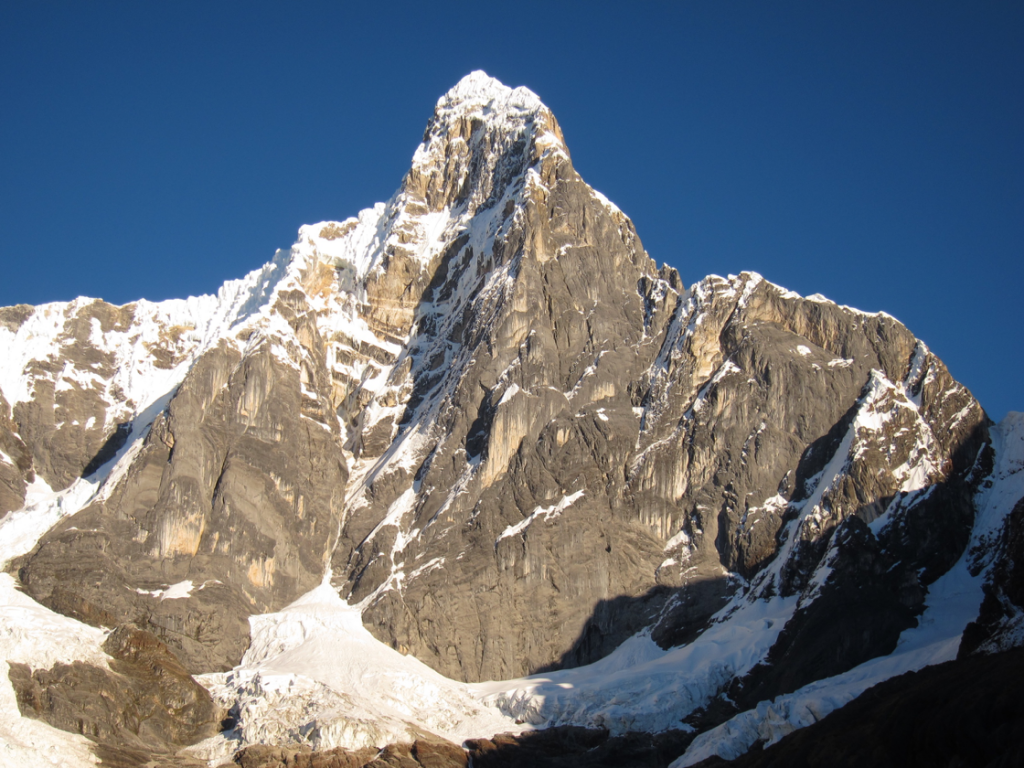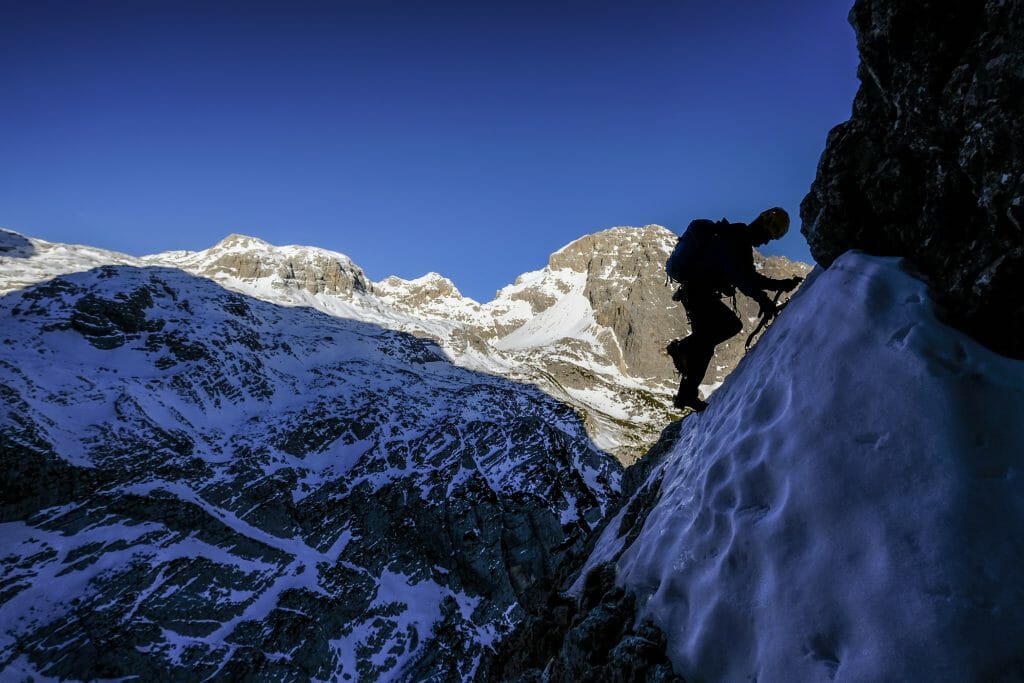Before we talk about 2018 and what a new year means to each of us personally and athletically, I want to be clear about one thing: Anything I accomplished, any success I achieved as a climber, and indeed my very survival, was enabled by the training I did. I have no special athletic talent.
In all likelihood, neither do you.
And that’s okay.
We’ve just completed our first year pursuing our mission to provide proven training knowledge to mountain athletes: coaching plans, training plans, phone consultations, numerous articles—144 and counting—and a rich intellectual framework based on 100-plus years of training practice from dozens of different sports. A framework tested, and proven, on millions of starting lines. The resources we offer, and those yet to come, give you tools. Tools to improve as much as you want to.
There are some big guiding principles: consistency in training, gradually increasing your training load over time (which means you have to measure it in order to know how to increase it), and modulating your training load to allow for periods of stress and adaptation.
And yet, while tools and knowledge can help, they are not enough. The mountains are performance agnostic. Training is not a game, you’re not here to play with a ball. You’re here to progress. And not only physically, but mentally and spiritually. Training, especially for sports devoid of trophies and material prizes, is a self-aware practice of physical, psychological, and personal growth.
You need motivation, commitment, and the simple ability to get out the door every day and train. To record it when you get done. To reflect on it, discuss it, and learn from the results. In short, you need to value the entire training process. To value the process, it helps immensely to know why. Why you climb, why you ski, why you run. You need to know thyself. Now.
Let’s figure that out.
What Are Your Core Values for Your Sport?
Start with this list of common values we’ve curated to help you (it’s easy to find such lists on the web). From this list, or another of your choosing, create a shortlist of 3–6 values that represent your top core values as they relate to your sport. Note that this list of core values will be different than what you would create for, say, your friendships. For example, many of you will likely choose adventure as a core value when thinking about your climbing. But few would include adventure when thinking about personal relationships. So approach this exercise from the viewpoint of your sport.
Also note that your core values can and do change over your lifetime. If I went back 15–20 years, my core values would have been: Achievement, Adventure, Boldness, Respect, and Self-Respect. Fast-forward to 2018, and I would identify my core values as: Contribution, Creativity, Growth, and Safety. I wasn’t aiming for this change, it simply happened. I’m sure everyone over 40, and many younger as well, can identify with this process.
What Are Your Goals?
The next step is to think about your goals—whether they are peaks or routes you wish to climb, races you want to enter (or even win), or journeys of any other kind.
I’m a climber, so I’ll stick with climbing. My climbing goal last year was a hard free climb, il Pesce (the Fish), a 900-meter-high route on the Marmolada in the Italian Dolomites. Due to a narrow time window of four days and hot temperatures, my partner and I didn’t even try the south-facing route. But nevertheless this goal did align with my values in a number of ways. It motivated me to push my personal rock climbing training farther than I had in the past (the route requires multiple back-to-back 5.12 pitches, which need to be climbed onsight on gear), and it didn’t take too much time away from the growing responsibilities of managing Uphill Athlete, or time with my wife and young son. It was safe, time-efficient, and a big challenge that focused my training and resulted in some of my all-time best rock climbing fitness.
This year, with my boy being older, I’m planning to go alpine climbing in Peru for three and a half weeks, specifically to attempt an all-free ascent of the Italian Route on Jirishanca with Josh Wharton and Mikey Schaefer. As Josh puts it: “It’s a perfect daddy-route with the two-bolt anchors, and some other bolts around for free climbing. Hard and technical as a free climb, but with minimal objective danger.” Right in line with my values, and Josh’s values, too (he’s also a dad).

Aligning Your Values with Your Goals
Aligning your own values with your goals is a powerful tool; it not only helps to ensure that you’ll get what you want out of the experience of preparing for and pursuing the goal, it will also ensure that your motivation is present each time you train. This is because values are something that are intrinsic to you, part of you, at this moment in your life’s journey. I wake up every day eager to fulfill my values through my thoughts and actions. It’s automatic. This may be a result of my subconscious understanding of my values rather than an overtly expressed list of values as I’m recommending here, but either way aligning values with goals is a real way of making sure I make time for my training and climbing each and every day.
So go ahead and disregard whatever concept you have of your personal talent. The people who think they don’t have enough most often have plenty and only need to understand the value of intelligent work. And the people who think they have talent in abundance usually fail through laziness. Whichever mindset you have, it’s safe to assume that you are close to the athletic average. Then recognize that we have that rich intellectual framework for improvement based on proven training practice, and numerous resources to help you along your path. Then identify your values. And identify your goals. Then reconcile those two things; the goal must be the round peg that fits the round hole of your values. Square goals don’t fit round values no matter how hard you try. And your values, when you look deeply inside yourself, are immovable, for this moment in time.
Your perception of your own natural capacity for your sport must submit to the fact that there is no quick fix, no silver-bullet workout or exercise or diet. Remember those millions of starting lines? All those world and Olympic records? Every one of them is built on the same proven training knowledge we present here. Simple, proven principles built on consistency, gradualness, and modulation and applied intelligently over a long time equal results.
Today is the start of a new year. And as we work together in 2018 to help you realize your full athletic capacity, we will inevitably focus on daily, weekly, annual training decisions. Intelligent training decisions must be guided by goals. Those goals must fit your values. And values, therefore, lie at the core of what we do as mountain athletes.
-by Uphill Athlete co-founder Steve House
Your Values + the Right Goals + Intelligent Training = Uphill Success
Welcome to 2018 from all of us at Uphill Athlete! We’re here to help you.
- 2017 New Year’s Day post: “Dreams are not Goals, and Goals are not Dreams,” (The most-read article on this site in 2017.)
- Read about Steve’s realization that he has no special athletic talent, and how that led him to coach Scott Johnston.
Top photo: Steve climbing in the Julian Alps in 2017. By Marko Prezelj

